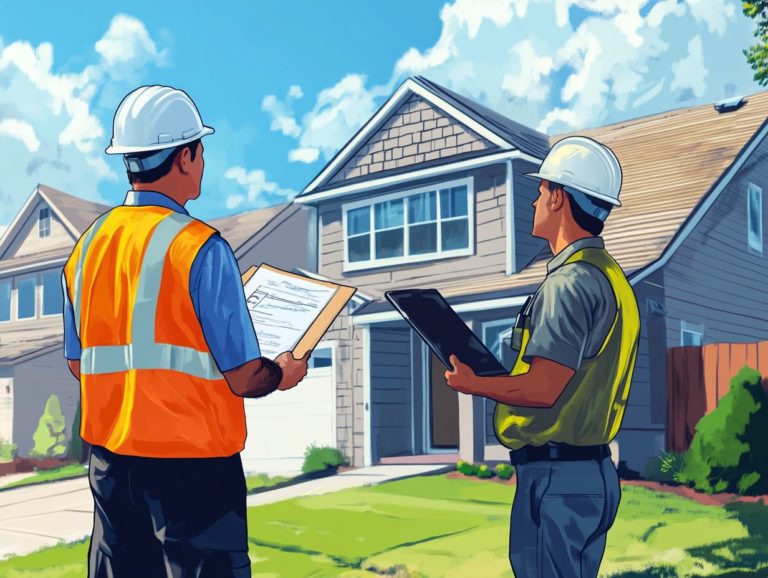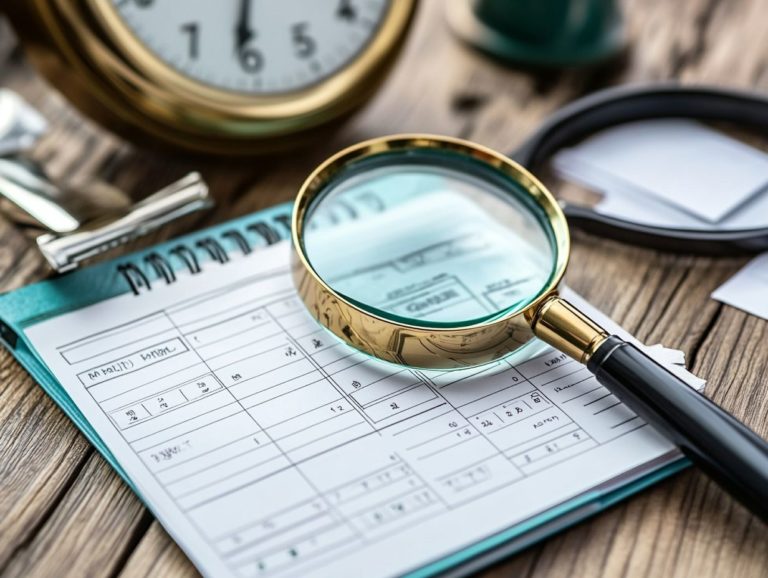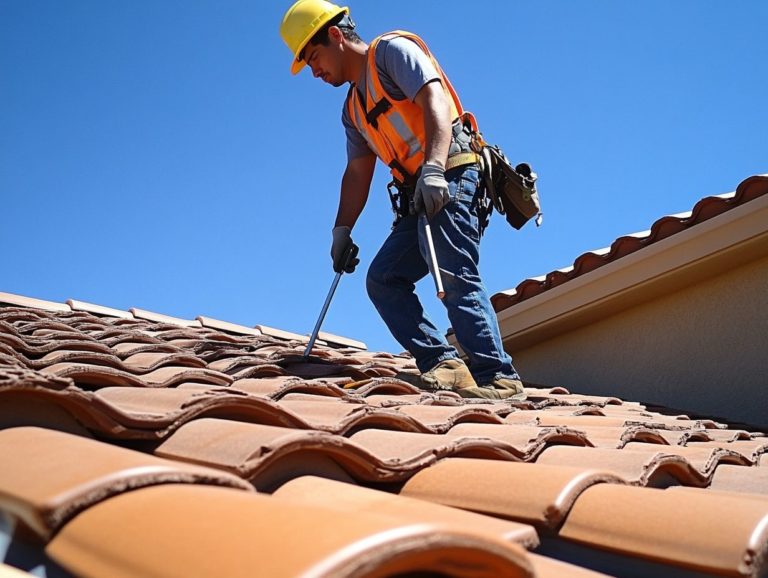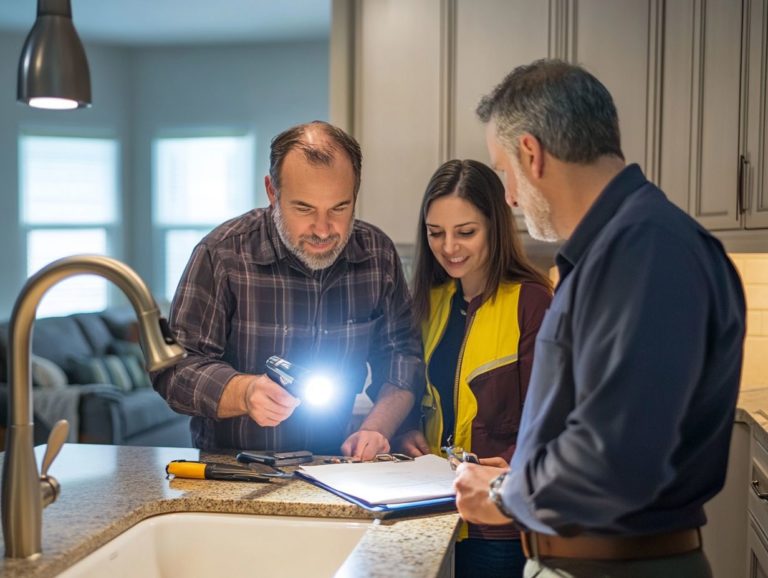Understanding Home Inspection Standards
Buying or selling a home is a significant milestone, and ensuring the property s condition is paramount. A home inspection serves as a thorough evaluation that provides peace of mind and safeguards your investment.
Let s dive into what home inspections are, their purpose, and the various types available. You ll discover the key components that are inspected, gain insight into what to expect during the process, learn how to interpret the results, and receive valuable tips for selecting the right inspector.
Explore the world of home inspections and empower your real estate journey!
Contents
- Key Takeaways:
- Why Home Inspections Matter!
- Types of Home Inspections
- The Importance of Following Standards
- Common Components of a Home Inspection
- What to Expect During a Home Inspection
- Interpreting the Inspection Report
- Tips for Choosing a Home Inspector
- Frequently Asked Questions
- What are home inspection standards?
- Why is it important to understand home inspection standards?
- Who sets the home inspection standards?
- What is included in a home inspection according to the standards?
- Are home inspectors required to follow these standards?
- Can a home inspection fail according to the standards?
Key Takeaways:
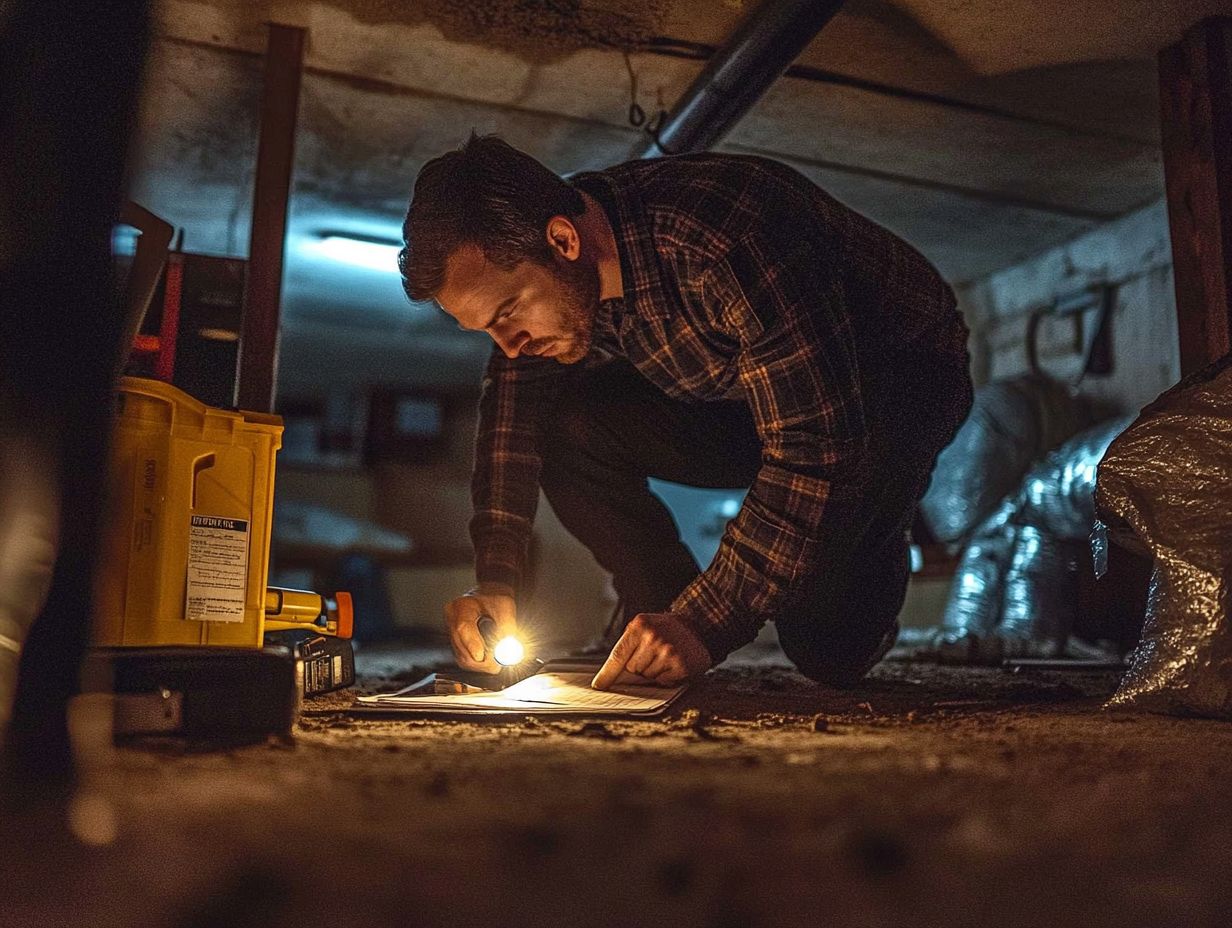
Don’t wait! Understanding the process of home inspections is crucial for both buyers and sellers. It ensures a thorough and unbiased evaluation of a property. The home inspection process follows specific standards to ensure consistency and accuracy, covering key areas such as the structure of the home, plumbing, and electrical systems. When choosing a home inspector, consider their qualifications and experience, as well as the standards they follow and the quality of their inspection reports.
Why Home Inspections Matter!
A home inspection is a meticulous evaluation of the physical condition of a residential property, carried out by a certified home inspector. This essential process assesses various structural elements and systems, including electrical and plumbing systems, heating and cooling systems, roof condition, and more.
The primary aim of a home inspection is to uncover potential issues that could impact the safety or value of the home. This invaluable insight equips both buyers and sellers with the knowledge they need to navigate real estate transactions confidently.
Definition and Purpose
A home inspection is a formal assessment carried out by a professional home inspector to identify potential issues within a property. This critical process highlights existing problems and reveals hidden defects that might elude the untrained eye.
As a prospective buyer, understanding the current state of the property is vital. It can significantly influence your purchasing decisions, impacting both the price you re willing to pay and your long-term investment strategy.
If you re a seller, a home inspection provides invaluable insights into necessary repairs before you list your home. This proactive approach can enhance your property’s market value and minimize any surprises during negotiations.
Some common issues that may surface during the inspection include:
- Structural damage: Affects the safety and stability of the home.
- Plumbing concerns: Can lead to leaks and water damage.
- Outdated electrical systems: May pose safety hazards and require upgrades.
Each of these points merits your careful consideration as you navigate the real estate landscape.
Types of Home Inspections
You ll find a variety of home inspections designed to cater to specific needs and circumstances. Each has a distinct role in assessing a property’s condition. Whether you opt for a standard home inspection or a specialized evaluation like pest control inspections or radon gas testing, the choice is yours based on your unique requirements.
Factors such as the home appraisal process and any existing inspection contingencies in the sale agreement can influence your decision. This ensures you re fully equipped to navigate the complexities of homeownership.
Overview of Different Standards
Different home inspection standards provide clear guidelines, helping to ensure that home inspectors adhere to understanding home inspection standards and practices for consistent evaluations across properties.
Organizations like the National Institute of Building Inspectors play a pivotal role in establishing these benchmarks, outlining specific criteria and procedures that inspectors must adhere to.
By following these standards, inspectors enhance the reliability of their assessments and build trust with homeowners and potential buyers, especially when considering what to know about home inspection policies.
Accurate evaluations grounded in established guidelines are essential for identifying critical issues, promoting safety, and enabling knowledge-based decision-making in real estate transactions.
Your commitment to consistent standards becomes invaluable, ensuring that property assessments are thorough, objective, and truly reflective of the home’s condition.
Ready to make your real estate journey smoother? Get your home inspected today!
The Importance of Following Standards
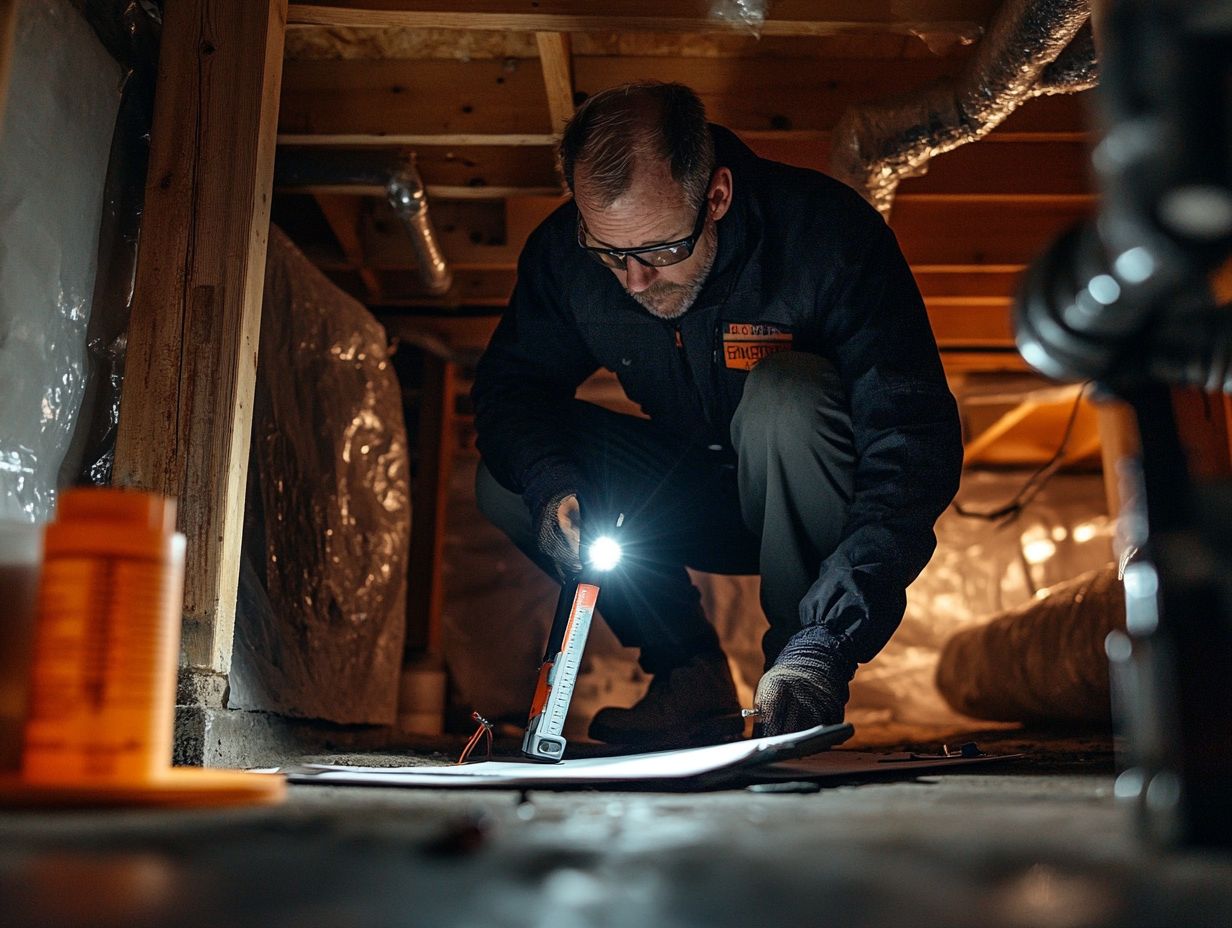
Adhering to established standards during a home inspection is essential for both buyers and sellers, as it guarantees a comprehensive and impartial assessment of the property’s condition. To ensure you’re working with a qualified professional, it’s important to look into understanding home inspector qualifications.
Accredited home inspectors follow the guidelines set by reputable organizations like the National Institute of Building Inspectors and the American Society of Home Inspectors. These frameworks are invaluable for pinpointing safety concerns and potential issues within critical systems, including plumbing, electrical, and structural components.
Benefits for Home Buyers and Sellers
The benefits of a home inspection are invaluable for both buyers and sellers. This process provides essential insights that elevate the real estate transaction.
For buyers, a comprehensive evaluation reveals hidden issues that might escape notice during a casual viewing. This enables you to make well-informed decisions and negotiate with confidence. By pinpointing potential repairs or necessary upgrades, you can sidestep future expenses, ultimately leading to a more secure investment.
For sellers, home inspections help identify and address problems before listing your property. This proactive approach enhances your home’s appeal and value, instilling confidence in prospective buyers and increasing the likelihood they’ll view your property favorably and feel secure during negotiations.
Common Components of a Home Inspection
A comprehensive home inspection includes several essential components vital for evaluating the overall condition and safety of a property.
As a home inspector, you systematically assess structural elements, electrical systems, plumbing, heating and cooling systems, and even the roof’s condition. You also examine exterior surfaces, attic insulation, and the garage to pinpoint any potential issues that may need attention.
This meticulous approach ensures a complete understanding of the property s integrity and safety.
Key Areas and Systems Inspected
During a home inspection, expect a detailed look at key areas and systems, including electrical systems, plumbing, and HVAC (heating, ventilation, and air conditioning) units. These components are crucial for both your home’s functionality and the safety of everyone living there.
The electrical system requires careful evaluation to avert potential hazards, such as fires or electrical shocks. Ensuring that all wiring is up to code and functioning flawlessly is essential.
The plumbing system is also checked for leaks and proper drainage, as unnoticed issues can escalate into significant water damage over time.
HVAC units are essential for maintaining air quality and comfort. A properly functioning system ensures your home stays warm in winter and cool in summer, creating a safe and enjoyable living environment.
What to Expect During a Home Inspection
During a home inspection, anticipate a thorough process that usually spans several hours, with a qualified inspector meticulously examining every aspect of the property. This involves a visual assessment of all critical systems and structural elements.
You ll receive a comprehensive home inspection report that details potential issues, highlights safety concerns, and offers essential recommendations for further evaluation. This report gives you the essential insights you need to make smart decisions regarding your transaction.
Process and Timeline
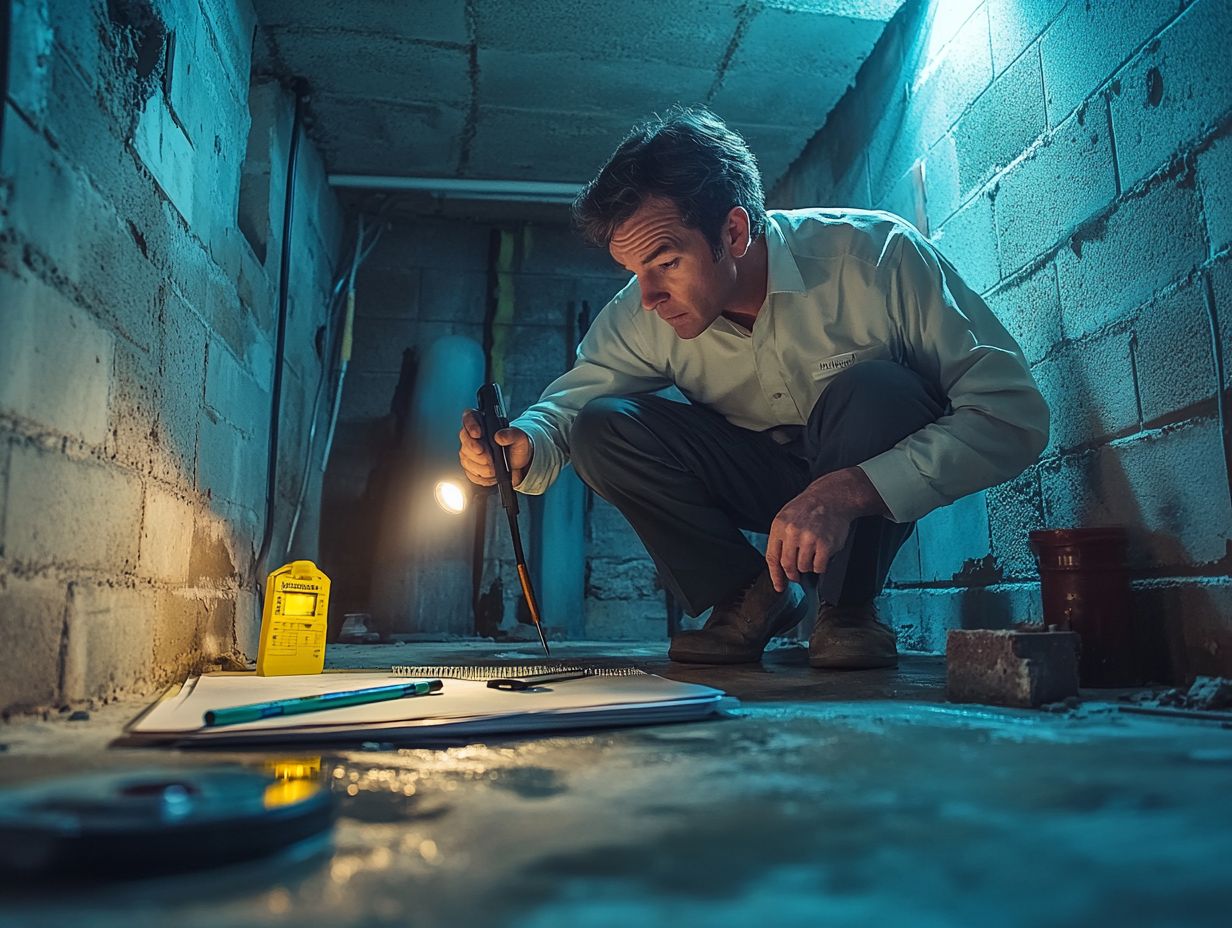
The home inspection process unfolds in a structured manner, beginning with scheduling an appointment with a home inspector and culminating in a thorough inspection report. This initial step lays the groundwork for a detailed examination of the property’s condition, ensuring that every essential aspect is covered within a reasonable timeframe.
Once your appointment is confirmed, the inspector arrives on-site, diligently assessing various elements of the home, including its structural integrity, electrical systems, plumbing conditions, and even potential pest issues. Each stage of this process is vital in uncovering hidden problems that could significantly influence your decision.
After the inspection concludes, you receive a comprehensive report summarizing the findings and providing valuable insights that can assist you in negotiations or future planning.
Interpreting the Inspection Report
Interpreting a home inspection report can feel overwhelming. However, grasping its results is essential for making informed decisions about a property.
This report offers invaluable insights into the home s condition. It highlights key findings related to safety and structural integrity and includes recommendations for further evaluation and potential repairs. This emphasizes the buyer’s responsibility during the home buying journey.
Understanding these details enables you to navigate the process with confidence and clarity.
Understanding Results and Recommendations
Grasping the results and recommendations in the home inspection report is vital for accurately assessing the property’s condition. This assessment serves as a crucial tool in your decision-making process.
It helps you pinpoint potential issues that may require immediate attention or lead to costly repairs later on. Carefully interpret each finding, weighing the implications of defects against your budget and long-term plans for the property.
For instance, if the report highlights safety concerns, such as an outdated electrical system, engage in immediate discussions with the seller about possible remedies.
The insights you gather from the report allow you to make informed choices that align with your financial considerations and lifestyle aspirations.
Tips for Choosing a Home Inspector
Selecting the right home inspector is an important choice for buyers. It can profoundly influence the results of the home inspection process.
As you embark on this journey, evaluate an inspector’s qualifications, experience, and reputation carefully.
Prepare a thoughtful list of relevant questions to ensure that the inspector aligns perfectly with your unique needs and concerns about the property.
This due diligence can make a significant difference in securing a sound investment.
Factors to Consider and Questions to Ask
When selecting a home inspector, consider specific factors and ask pointed questions to ensure you make a well-informed decision.
First, pay attention to critical elements such as verifying certifications, assessing the inspector’s experience, and understanding their approach to inspections. Look for professionals with certifications from reputable organizations; this often signifies a higher standard of qualifications.
An experienced inspector is likely to have encountered a wider range of issues. This means you ll receive a more comprehensive evaluation of the property.
During your selection process, consider asking questions like:
- What qualifications do you have?
- Can you provide references from past clients?
These inquiries shed light on the inspector’s expertise and reliability. It s also wise to ask about the tools they use and how they document their findings.
By focusing on these essentials, you can ensure that your investment in a home is both protected and informed.
Frequently Asked Questions
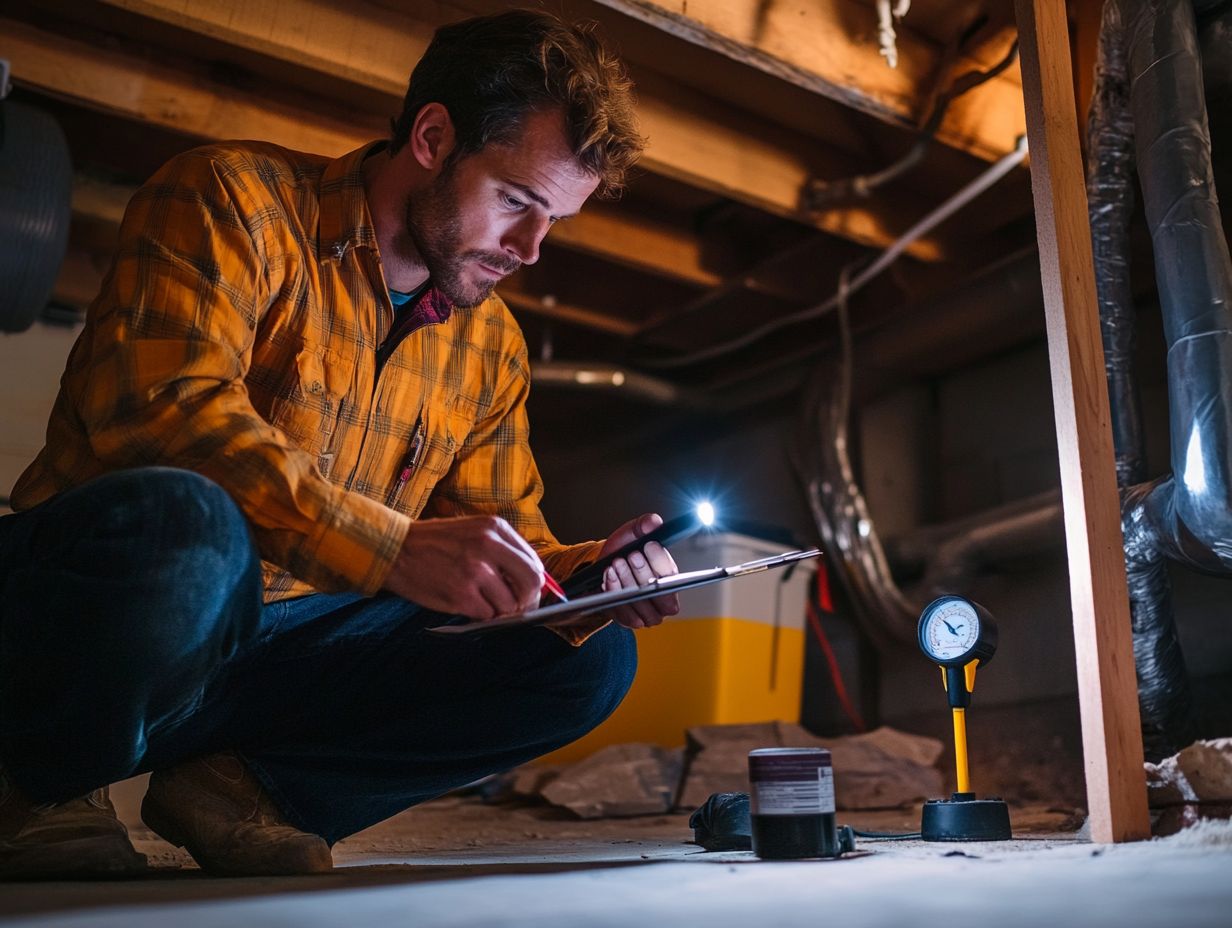
What are home inspection standards?
Home inspection standards outline how inspections should be done to ensure quality. These guidelines dictate the process and criteria for conducting a thorough and accurate inspection, including understanding the home inspection report of a property.
Why is it important to understand home inspection standards?
Understanding home inspection standards helps buyers, sellers, and homeowners know what to expect during a home inspection. It ensures that the inspection is conducted systematically and thoroughly, providing a reliable assessment of the property’s condition.
Who sets the home inspection standards?
Home inspection standards are set by professional home inspection organizations, such as the American Society of Home Inspectors (ASHI) and the International Association of Certified Home Inspectors (InterNACHI). For a deeper insight, understanding the basics of home inspections is essential, as these organizations have established standards of practice and a code of ethics that their members must adhere to.
What is included in a home inspection according to the standards?
Home inspection standards require checking the structure of the property. This includes the foundation, walls, roof, and floors, and it’s important to be aware of understanding the home inspector’s role in this process.
The inspection should also assess the electrical, plumbing, and heating, ventilation, and air conditioning (HVAC) systems. Additionally, both the interior and exterior of the property need to be evaluated.
Are home inspectors required to follow these standards?
Professional home inspectors are expected to follow the home inspection standards set by their organizations. These standards ensure a thorough and fair property review, making it important to grasp understanding the home inspection process.
Not all states have regulations for home inspectors. Therefore, it’s vital to choose a certified and reputable inspector.
Can a home inspection fail according to the standards?
Home inspections don t grade properties. Instead, they reveal potential issues or defects in a property.
The inspector will provide a report with their findings. It is up to the buyer to decide whether to proceed with the purchase or negotiate repairs with the seller.
If the inspector fails to follow the home inspection standards, it could be grounds for a complaint or legal action against them.
Review the inspector’s report carefully and decide if you want to proceed with the purchase or negotiate repairs. Your home is a big investment make sure you protect it!

